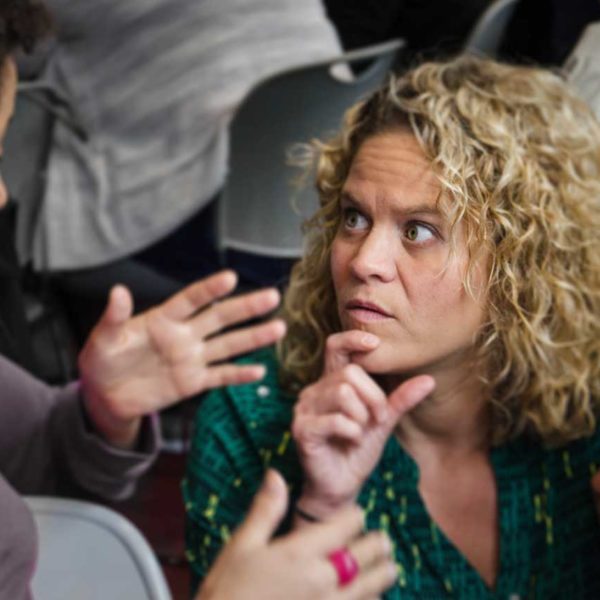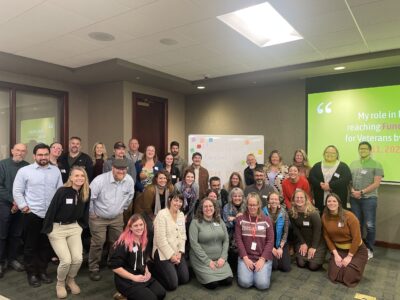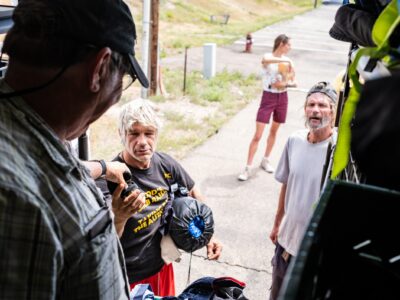What’s your history? How did you end up at Community Solutions?
I started my career as a social worker in Columbus, OH before making my way to Los Angeles to help further develop the supportive housing industry for people experiencing homelessness. I had the incredible opportunity to serve as both Mayor Villaraigosa’s Homelessness Policy Coordinator and the Los Angeles Homeless Services Authority’s Director of Policy and Planning.
I learned some great lessons in local government, but I also knew I couldn’t sustain a career there forever. I felt too removed from the work, and I often struggled to see the impact of the policies and programs I was designing every day.
When Rosanne, Becky Kanis and Beth Sandor came out to LA and told me about the 100,000 Homes Campaign, I jumped at it. They hired me to be the lead Campaign Organizer in LA, where I worked with more than 40 local communities to apply quality improvement and design thinking strategies to their work.
You’re really skilled at what you do and could probably do it anywhere. Why do you choose to give your talents to Community Solutions everyday, instead of someplace else?
Community Solutions isn’t just a think tank or a consultancy— this place asks you to embrace the mindsets necessary for hugely ambitious problem solving. We’re helping communities innovate and test new ideas in highly resource constrained environments. It’s very bold work. The constant testing of new ideas makes the work feel fun, and it makes me feel like I have space to be creative — to discover with local leaders the best ideas that will lead to measurable reductions in the number of people experiencing homelessness.
What’s one story that best captures your reason for doing this work or the impact you feel you’re making here. Tell us something we might not see or learn about otherwise.
I feel really proud of how we started helping communities discover and improve local Coordinated Entry Systems, which is a wonky term for making sure everyone who experiences homelessness in a community is connected to housing in the same, data-driven way, no matter who they are or which agency they show up at. We really led here, long before the federal government mandated these approaches, and as a result, we were able to test, iterate, and scale a lot of great ideas.
Traditionally, policy is made far away in Washington or in state capitals, and then communities have to figure out how to implement it. What feels exciting about our work is that it has allowed communities to test and develop ideas that are now informing policy. I think our government partners are really excited to be working in closer collaboration with these communities, too.





